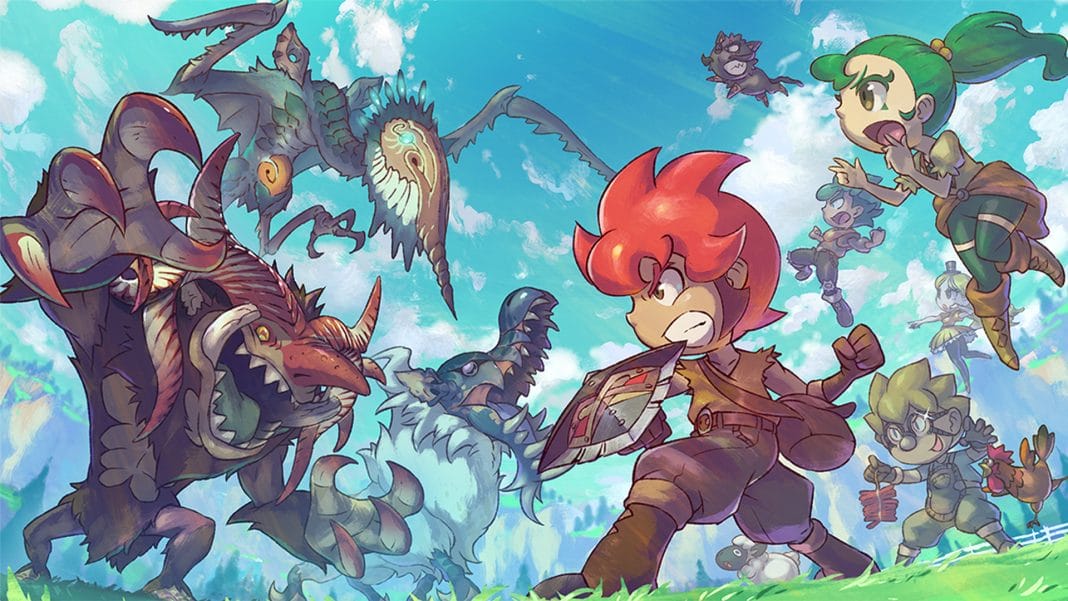Little Town Hero by Game Freak, the developers of the mainline Pokemon games, was originally revealed in a Nintendo Direct. It has looked interesting right from the get go. Little Town Hero has always looked like a game designed for Nintendo 3DS but brought to new hardware thanks to its stylised chibi characters, something most JRPG fans know very well. After seeing more of the game, I was very excited to check out the final build. Little Town Hero gets a lot right and has the potential to be a must play on Nintendo Switch if some of the flaws fixed.
You play as Axe who is a young boy in a town who lives with his mother. There is one important rule in the town. You can’t leave said town. There is no massive world to explore here. The game is set in this town and this includes boss fights, character development, all the side quests, and more. Axe is tired of the status quo and tries to escape. One thing leads to another and Axe ends up finding a particular stone that makes him quite powerful.
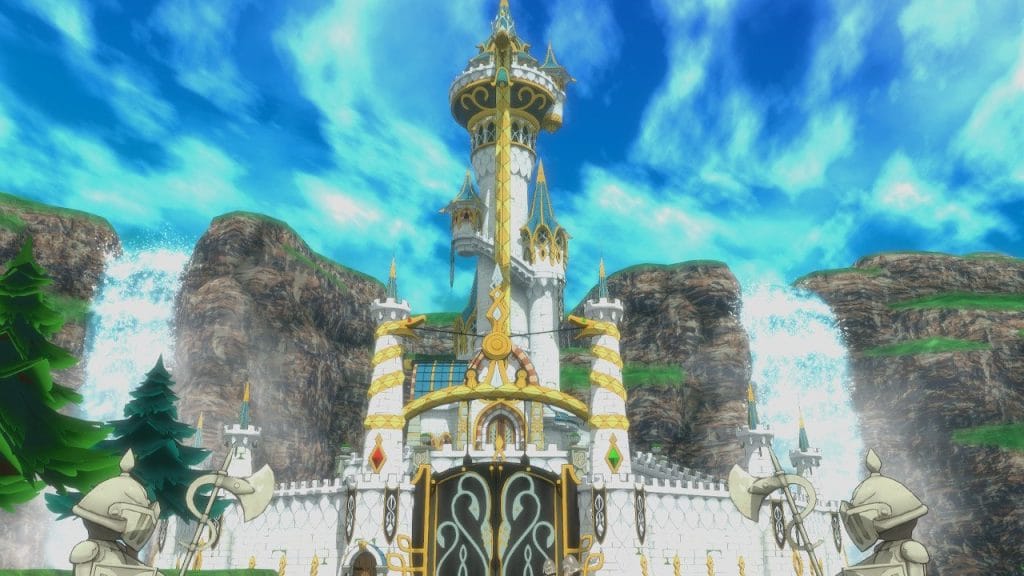
The great aspect of a sharp focus on this town is that you learn the ins and outs of the locations in town rather quickly. The story and side quests are very nice and never feel monotonous. The only aspect that might turn people off is the combat when it comes to the core design.
Little Town Hero is a very deceptive game. Given Game Freak’s history (not counting the fantastic and smart Pocket Card Jockey on 3DS), I expected this to be a smaller scale JRPG that played it safe with simplistic combat. Little Town Hero has a very complex and excellent combat system, has an interesting premise that it builds on well, great music, and doesn’t overstay its welcome.
Combat in Little Town Hero is a combination of a few systems. The game itself has very vague terminology that involves made up words that will confuse you quite a bit. The core concept involves you using three kinds of skills which are attack focussed, defense focussed, and boost focussed skills. Skills have a mana cost and these skills can be used in a turn once they are activated which the game calls realisation.
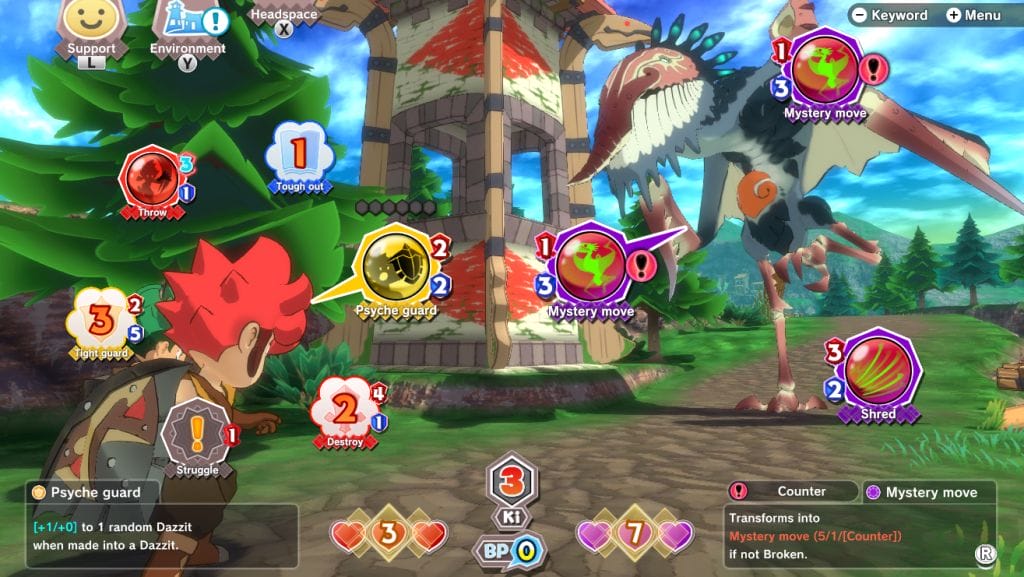
Each of the attack and defense focussed skills have their own health and attack values. Your aim is to break the opponents skills by reducing the skills’ health to zero while trying to retain an attack skill so you can progress into a chance turn. If you’ve taken down every skill your opponent has, and you have a realised attack skill, you can damage the opponent’s health. This is what you need to aim for in combat. Each time all skills are broken, you either get BP that I will get to in a bit or you can attack the opponents actual health.
You can use BP to swap skills with what is available in your Headspace which is basically your deck and revive skills that were broken. All of this happens with a board game dice mechanic. Each turn in most encounters has you moving spots across the map and the spot you land on might give you a boost or help you in some form. Some encounters let you gain free movement which can turn the tide of battle because a lot of the boosts offered by townspeople in game help a lot. Some even give you new skills during combat.
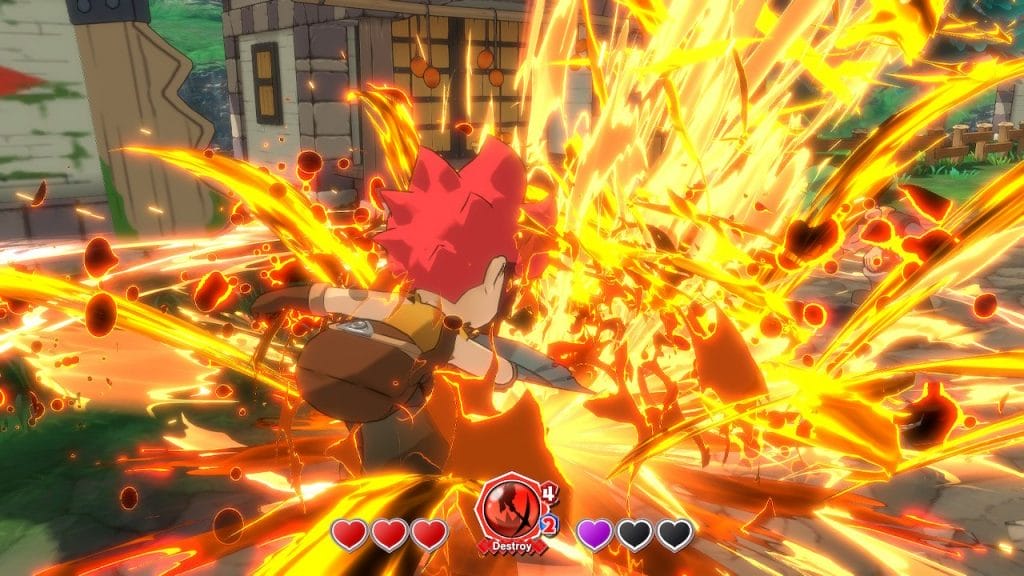
Little Town Hero’s combat is definitely something that will make or break this game for you. If it clicks, I can easily see this becoming one of your favourite combat systems in a while. It definitely is one of mine. If you’ve never enjoyed strategic card game like systems in game, this is definitely not the game for you.
Visually, Little Town Hero is very colourful and has a great cel-shaded aesthetic. Character models look very nice and the environment is impressive despite the small scale. Animations are mostly good with a few design choices being questionable like having non-playable characters walk in place and not move when you approach. That just looks jarring. Combat animations are nice but could use more variety. Little Town Hero looks good both docked and in handheld.
Monster designs are excellent and the bosses in particular look like they had a lot more care put into the designs than some of the story relevant characters. The complete aesthetic is what I’d picture for a lot of 3DS JRPGs when brought to the Switch and I hope the team behind a game like say The Alliance Alive (which was ported to PS4 and Nintendo Switch from Nintendo 3DS) can do something similar with its next game. Little Town Hero is definitely the most charming game from Game Freak yet.
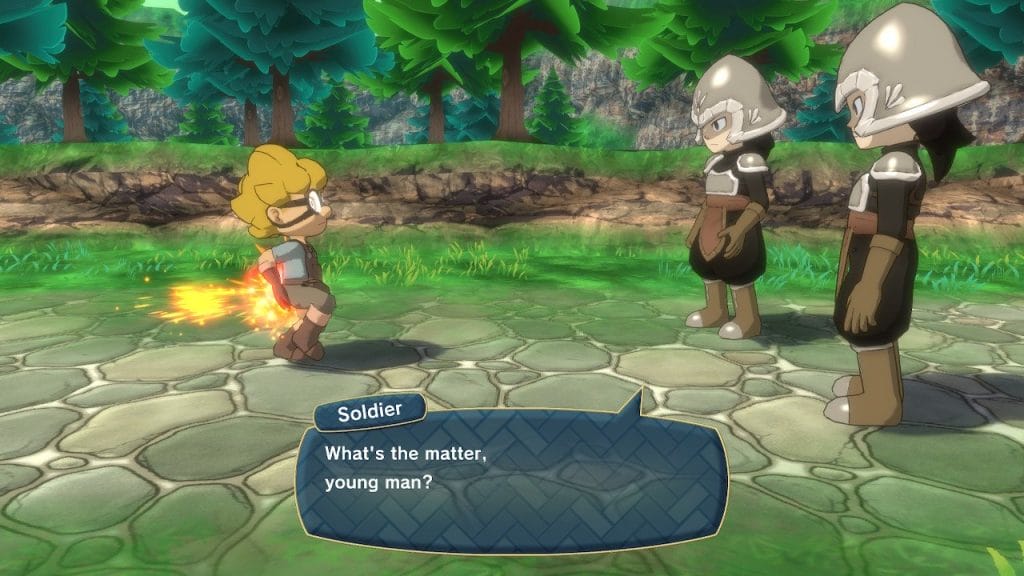
Performance is not great. While Little Town Hero mostly tries and succeeds at hitting the 30fps target, it often struggles during combat and has lots of random freezes for a second or two when story moments are about to happen. Even the in-game menu sometimes takes a few seconds to load for the first time. Input lag is something I hope gets fixed in future patches because even with the slow camera movement and frame drops, the menu lag is the biggest problem here.
Audio design in Little Town Hero is a bit inconsistent. While the music that happens to feature Toby Fox (Undertale) is very good, there are instances where certain tracks restart quite often. The recent port of Final Fantasy VII on Xbox One and Nintendo Switch had this issue and thankfully it was eventually fixed. There is no voice acting and each character has its own sound just like some older games. A lot of the sound effects are very well done like the in game quest related jingle that plays when you make progress in the story or in side quests. One audio related issue happens during loading into an area or into a save when the music cuts out sometimes.
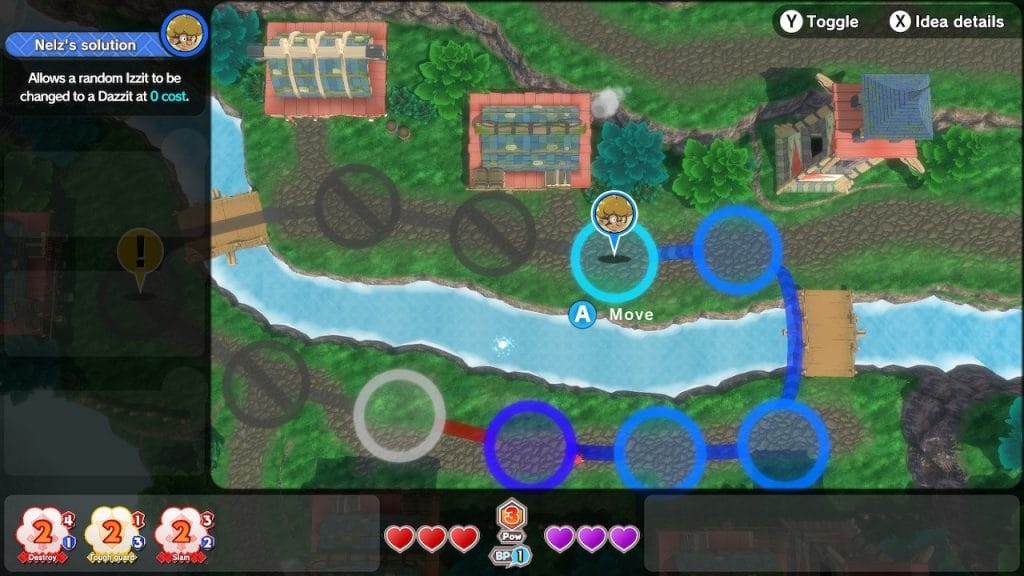
Barring the performance issues, the biggest problems are having no options for camera movement and how you can’t use the d-pad for most menus and are forced to use the analog stick. Not having camera speed options is annoying because it moves at a snail’s pace.
Overall, Little Town Hero is worth playing with some caveats. If you aren’t a fan of strategic battles that blend in various gameplay systems together that have a focus on card game like mechanics, this is definitely not for you. I’m very impressed with the end result of the combat system and how challenging it gets right from the start. If the performance issues get addressed, this is definitely going to be an easy recommendation for any Nintendo Switch owner looking for a fascinating RPG with rewarding combat.
